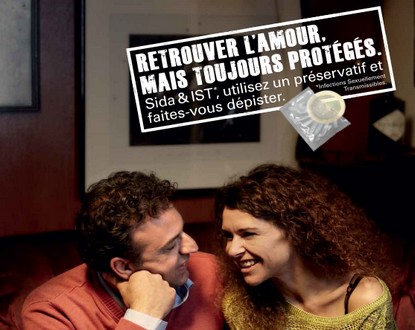The Alpes-Maritimes department receives more than one million tourists during the summer period. In this context, over 300 cultural events are organized by local authorities for the general public, but especially for young people.
Concerts, festive venues, markets, and train stations are places where a dynamic of prevention and risk reduction for HIV transmission (rapid testing), STIs, hepatitis, and the consumption of psychoactive substances can be established in partnership with local stakeholders.
This prevention and risk reduction program has been developed for 12 years.
With more than 7,400 reported cases of AIDS, the Provence-Alpes-Côte d’Azur region remains the most vulnerable region to the epidemic, after Ile-de-France. The number of positive diagnoses in the PACA region increased from 2008 to 2011, and the provisional figure for 2012 suggests a further rise.
In the PACA region, men who have sex with men (MSM) have been the majority group among newly reported positive cases since 2008, representing nearly 60% of cases in 2010.
A significant portion of positive diagnoses is made early, but late testing also exists. In 2010, 36% of AIDS cases diagnosed in PACA concerned individuals who were unaware of their positive status until the advanced stage. In France, 40,000 to 50,000 people are unaware of their positive status.
The use of condoms during a first sexual encounter is becoming more systematic. The idea of protecting oneself from the first sexual encounter seems increasingly ingrained in the minds of young people.
For more than ten years, the rate of female contraception in France has been one of the highest in Europe: more than two-thirds of women of childbearing age use contraception today. The pill is the most common, particularly among young women: 60% of 20-24 year-olds.
Thus, it is essential to implement prevention actions such as the “Summer Campaign” in festive venues.


